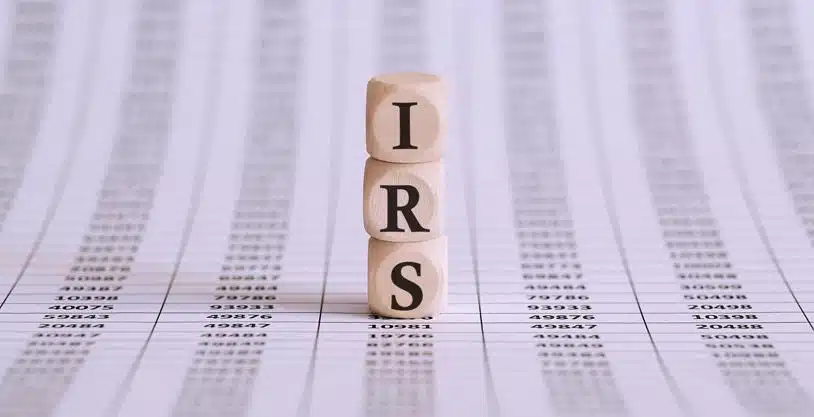Tax Attorneys in Illinois
Tax issues can be stressful and confusing.
At taxlawyer.com, we connect Illinois taxpayers with knowledgeable Illinois tax attorneys who will protect their rights and provide strategic solutions. Let us handle the complexities while you move forward with confidence.

Book A Consultation

Tax Law in Illinois
Illinois imposes a flat 4.95% individual income tax and a 9.5% corporate income tax. The state sales tax rate is 6.25%, but local surtaxes push the combined average to 8.86%. Property taxes are among the highest in the nation. The Illinois Department of Revenue (IDOR) is responsible for tax enforcement and administration.
Facing tax issues? TaxLawyer.com links Illinois taxpayers with skilled Illinois tax attorneys to resolve disputes, audits, and tax liabilities.
Find the Best Tax Attorneys in Illinois
Dealing with an IRS audit or back taxes in Illinois? TaxLawyer.com connects you with the best tax attorney in Illinois to fight for your rights and find the right tax solutions. Don’t let tax issues derail your finances – schedule a consultation today.
Resolve Your Tax Issues in Illinois with Expert Legal Help
Tax Lawyer Services in Illinois
Tax Planning
Illinois has a flat 4.95% state income tax and a 9.5% corporate tax.
At TaxLawyer.com, our experienced Illinois tax attorneys create customized strategies to minimize tax liabilities, ensure compliance, and improve financial outcomes for individuals and businesses.
Payroll Taxes
Payroll tax compliance is essential in Illinois.
Our Illinois income tax law attorneys at TaxLawyer.com help businesses handle payroll withholding, unemployment insurance, and reporting obligations while optimizing tax efficiency.
IRS Audit
IRS audits can be stressful and costly.
Our Illinois tax attorneys provide expert defense, prepare required documents, and negotiate favorable outcomes to protect your assets.
IRS Tax Evasion
Facing tax evasion charges in Illinois?
Our top Illinois tax fraud attorneys offer legal defense, IRS negotiation, and strategic solutions to mitigate financial risks.
Sales and Use Tax
Illinois has a 6.25% state sales tax, with local rates bringing the average to 8.86%.
Our TaxLawyer.com Illinois sales tax attorneys ensure businesses meet tax obligations, maximize tax credits and benefits, while minimizing liabilities.
Back Taxes
Unpaid Illinois back taxes?
Our experienced tax attorneys in Illinois assist with settlements, penalty reduction, and IRS collection defense.
IRS Voluntary Disclosure Practice
Need to report unfiled income?
Our tax attorney Illinois guide you through the IRS Voluntary Disclosure Program, reducing penalties while ensuring compliance.
IRS Wage Garnishment
IRS wage garnishments can be financially damaging.
Our tax attorney Illinois at TaxLawyer.com negotiate with the IRS to dismiss or halt wage garnishments, and create manageable repayment plans.
IRS Crypto Tax
Crypto transactions in Illinois?
Our Illinois attorney crypto tax specialists ensure compliance with IRS reporting and regulations, reduce audit risk, and maximize tax benefits while minimizing tax burdens.
Offshore Income & Tax
Holding offshore assets?
Our experienced Illinois tax law attorneys assist with IRS foreign income reporting, eliminate double taxation by ensuring compliance and using tax-treaties while protecting your wealth.
IRS Tax Lien
An IRS tax lien can jeopardize your financial standing.
Our tax attorneys in Illinois negotiate IRS tax lien removal or dismissal, payment plans, and asset protection solutions.
Tax Levy
Facing an IRS tax levy in Illinois?
Our tax attorney Illinois at TaxLawyer.com act swiftly to dismiss or release levies, while concurrently securing tax relief solutions. Clients’ financial security is our topmost priority.
Unfiled Tax Returns
Unfiled returns can lead to an IRS tax audit.
Our Illinois tax law attorney help file overdue returns, minimize penalties, and negotiate with the IRS.
Why Work With Our Tax Lawyers
Tax Law Specialists
From IRS disputes to corporate tax structuring, our dedicated Illinois tax attorneys provide strategic legal solutions designed to protect your assets, minimize tax liabilities, and ensure full compliance with state and federal laws.
Assistance Every Step of the Way
Whether dealing with an audit, an IRS appeal, or business tax planning in Illinois, our Illinois tax law experts provide step-by-step guidance to help you resolve issues efficiently and with confidence.
Educational Resources
Gain deeper insights into Illinois tax regulations, IRS policies, and compliance requirements with our comprehensive resources, designed to help individuals and businesses navigate the state’s dynamic tax landscape.
United States Tax Law Blogs
-
CRA vs. IRS Service Levels: A Cross-Border Comparison of Tax Administration Risks for Canadian and U.S. Taxpayers
Overview: Why Administrative Performance Matters in Cross-Border Tax Planning For taxpayers operating in both Canada…
-
IRS Service Levels for the 2026 Tax Filing Season: What Recent IRS Performance Means for U.S. Taxpayers
Overview: IRS Service Levels and Administrative Risk in U.S. Tax Compliance The Internal Revenue Service…
-
How American ‘Jock Tax’ and State Income Tax Affect NFL Players, Other Professional Athletes: The Sam Darnold Super Bowl Example
The “jock tax” remains one of the most complex and strategically significant areas of U.S.…
Frequently Asked Questions
How do taxes work in Illinois?
Illinois has a flat state income tax of 4.95%, meaning all residents pay the same state tax rate regardless of income level. The state sales tax is 6.25%, but local surtaxes can push it above 10%. Property taxes are among the highest in the U.S., with rates set by local governments. The corporate income tax is effectively 9.5%, one of the highest nationwide. The Illinois Department of Revenue (IDOR) is responsible for tax enforcement and administration.
Illinois also imposes an estate tax on estates over $4 million but has no inheritance tax. The state has one of the highest gas taxes, with automatic increases tied to inflation. Illinois relies heavily on income, property, and sales taxes for revenue.
How is income taxed in Illinois?
Illinois has a flat state income tax rate of 4.95%, meaning all residents pay the same percentage regardless of income level. This rate applies to wages, salaries, self-employment income, rental income, and investment earnings. Unlike some states, Illinois does not have tax brackets or a progressive tax system.
Retirement income, including Social Security benefits, pensions, 401(k) distributions, and IRA withdrawals, is exempt from state income tax. However, residents must still pay federal income tax on these earnings.
Additionally, businesses structured as C corporations are subject to a 7% corporate income tax, plus a 2.5% replacement tax, making the effective rate 9.5%.
What income is not taxed?
Illinois exempts several types of income from state taxation, reducing the overall tax burden for certain individuals:
- Retirement Income: Social Security benefits, pensions, 401(k) distributions, IRA withdrawals, and other qualified retirement income are not subject to Illinois state income tax. However, they remain taxable at the federal level.
- Certain Military Benefits: Active-duty military pay and military retirement pay are exempt from Illinois state income tax.
- Municipal Bond Interest: Interest earned from Illinois municipal bonds is not taxed by the state.
- Railroad unemployment benefits: Railroad Unemployment is the only type of unemployment income that is not taxed by Illinois.
While Illinois has a flat 4.95% state income tax, these exemptions provide significant tax relief for retirees and certain taxpayers.
Are there any tax exemptions?
Yes, Illinois offers several tax exemptions to reduce tax burdens for residents and businesses:
- Retirement Income Exemption: Social Security benefits, pensions, 401(k) distributions, and IRA withdrawals are not subject to Illinois state income tax.
- Property Tax Exemptions: Homeowners can benefit from exemptions such as the General Homestead Exemption, Senior Citizens Homestead Exemption, and Disabled Veterans Exemption, which reduce taxable property value.
- Sales Tax Exemptions: Groceries, prescription medications, and medical devices are taxed at a reduced 1% rate, while some manufacturing and agricultural equipment purchases are fully exempt.
- Estate Tax Exemption: Estates valued under $4 million are exempt from Illinois’ estate tax.
These exemptions help lower tax liabilities for eligible taxpayers.
How do you file taxes in Illinois?
- State Income Tax: Illinois imposes a flat income tax rate of 4.95% on all taxable income. You can file your state income tax using:
- MyTax Illinois: The Illinois Department of Revenue offers a free online portal for electronic filing.
- Approved E-File Providers: Taxpayers can use authorized third-party software listed on the Illinois Department of Revenue’s website.
- Federal Income Tax Filing: You can file your federal income tax in Illinois using –
- IRS Direct File: As of the 2025 tax season, eligible Illinois residents can use the IRS Direct File service to prepare and file their federal tax returns online directly with the IRS for free
- Use IRS Form 1040 for personal federal taxes.
- File online through the IRS Free File, tax software, or with a tax professional.
- Property Tax: Collected at the county level.
How much does a tax lawyer cost?
Illinois tax lawyer fees vary depending on the scope of services – ranging from IRS disputes to corporate tax structuring and penalty relief.
At Taxlawyer.com, we help Illinois residents connect with top-rated Illinois tax attorneys who offer expert guidance without unnecessary financial strain.
How to hire a tax lawyer in Illinois
Tax issues in Illinois whether state audits, IRS disputes, or business tax planning, require an experienced Illinois tax attorney. Here’s how to choose the right one:
- Determine your tax concerns: Unpaid taxes, penalty relief, audits, or corporate tax matters.
- Verify legal credentials: Ensure the lawyer is licensed and specializes in tax litigation or planning.
- Set up an initial consultation: Review potential solutions and legal strategies.
- Clarify costs and expectations: Understand all legal fees before proceeding.
At TaxLawyer.com, we simplify the process by connecting Illinois residents with qualified Illinois tax lawyers.
Find a Tax Lawyer in Your Area
Get expert tax assistance in:
Tax laws in Illinois
- Flat Income Tax: Illinois has a flat state income tax rate of 4.95%, meaning all taxpayers pay the same percentage regardless of income.
- Retirement Income Exemption: Social Security, pensions, 401(k) withdrawals, and IRA distributions are not subject to state income tax.
- Sales Tax: The state sales tax is 6.25%, but local surtaxes can increase it to over 10%. Groceries and prescription drugs are taxed at a reduced 1% rate.
- Property Tax: Illinois has some of the highest property taxes in the U.S., set at the local level. Exemptions exist for homeowners, seniors, and veterans.
- Corporate Tax: The corporate income tax is 7%, plus a 2.5% replacement tax, making the effective rate 9.5%, one of the highest in the nation.
- Estate Tax: Illinois imposes an estate tax on estates over $4 million, but there is no inheritance tax. This tax is administered by the office of the Illinois attorney general.
- Fuel & Tobacco Tax: Illinois also has a 66.5 cents per gallon gas tax rate (one of the highest in the country) and a $2.98 cigarette excise tax rate.
Illinois relies heavily on income, sales, and property taxes, making it one of the higher-taxed states in the U.S.



